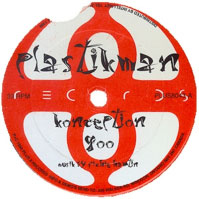 Released in 1994, Plastikman’s Musik was a game-changer. It was like a study of the 303, and ranged from swirling, creamy dreamscapes to piercing acid – and it did it without sounding haphazard. Given the breadth of its dynamism, it’s hard even today to understand how it’s so cohesive. But it is.
Released in 1994, Plastikman’s Musik was a game-changer. It was like a study of the 303, and ranged from swirling, creamy dreamscapes to piercing acid – and it did it without sounding haphazard. Given the breadth of its dynamism, it’s hard even today to understand how it’s so cohesive. But it is.
Musik came out when Ace Of Bass and C+C Music Factory were topping the charts with saccharine EDM-inspired pop. From this unlikely bedrock, Musik captured an audience whose imaginations hadn’t been challenged like this before, and it went on to be a powerful influence on everyone from The Chemical Brothers to Aphex Twin; from Björk to The Flaming Lips.
Focusing almost solely on just the 808 and 909 drum machines and the legendary 303, Musik drifts effortlessly between comfortable, neo-acid ambient soundscapes and edgy, volatile angst. Detractors will zero in on its repetitiveness, but to the legion of fans it has secured through the years, it’s a perfect example of the way that subtle changes over time can be used as an articulate, very organic narrator. And given the restrictions of using just a handful of insensate machines, that’s no mean feat.
For all its repetition, Musik is a very dynamic album, switching it up between playful and somber; sprightly and ponderous; organic and synthetic. Plastikman – among a hundred pseudonyms, his real name is Richie Hawtin – is just a master craftsman of timbre and sound design. If you don’t already have it, do yourself a favour and grab a copy of Musik. At nearly 20 years old, it’s still an amazing album and a bona fide work of art that really stands up to the test of time.




